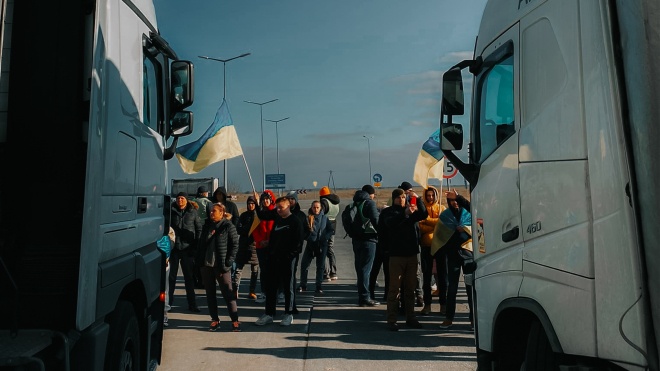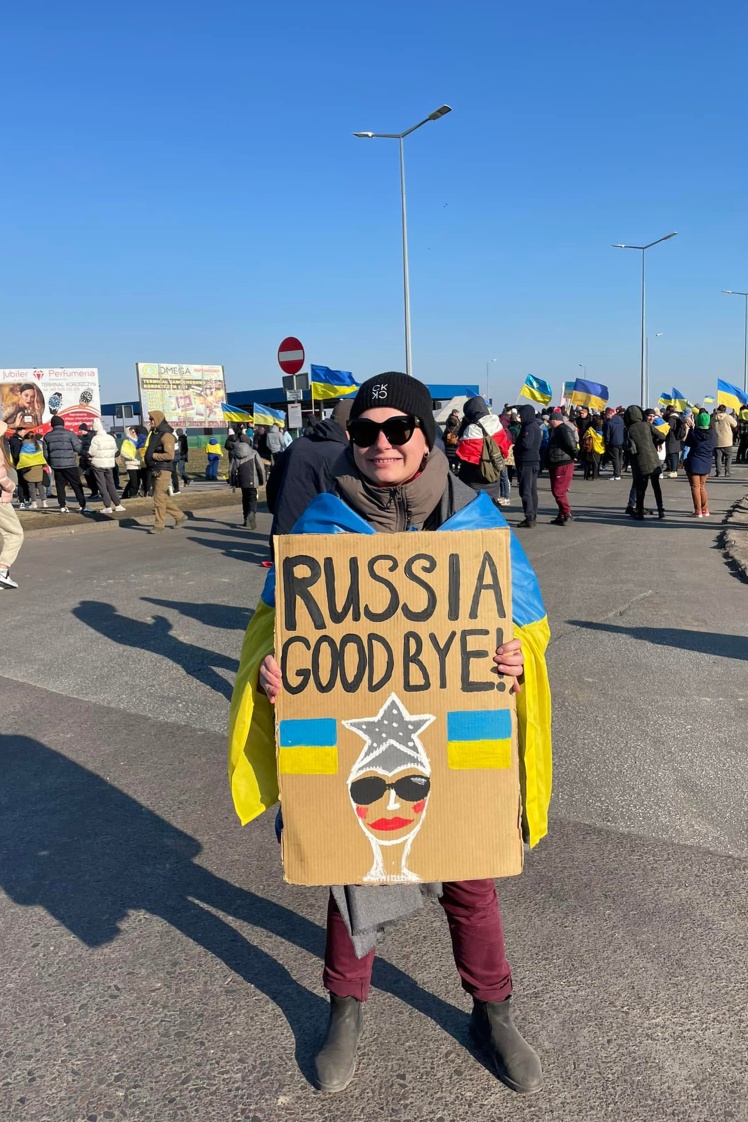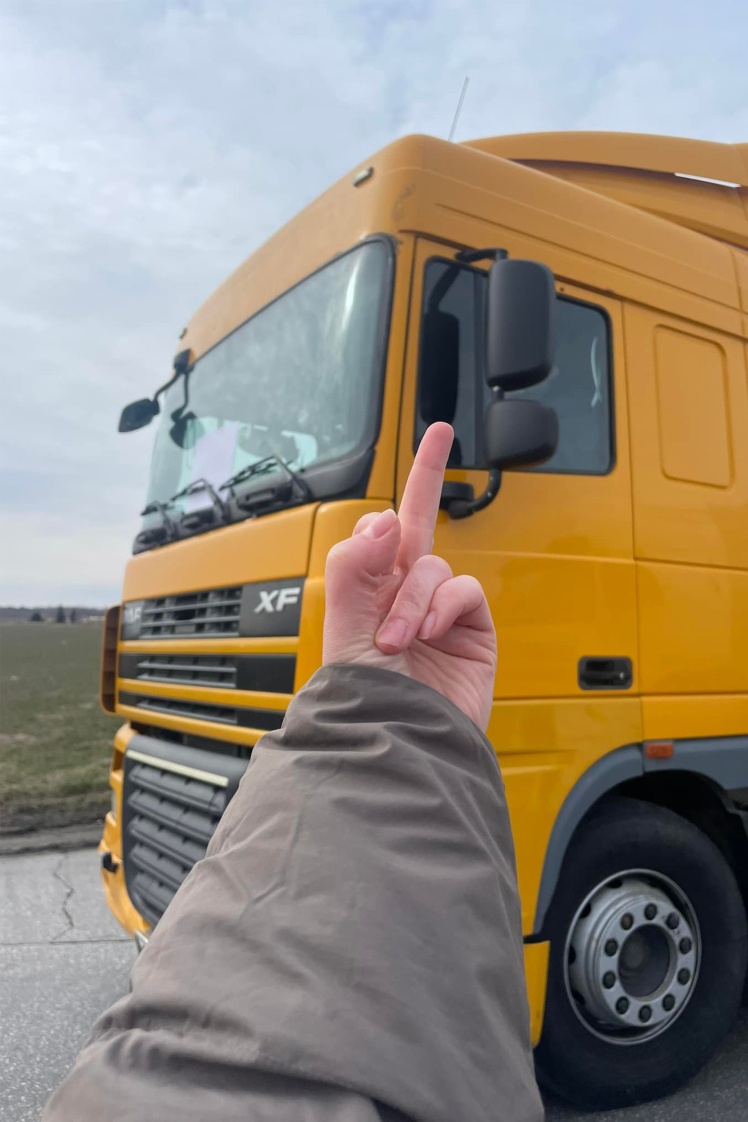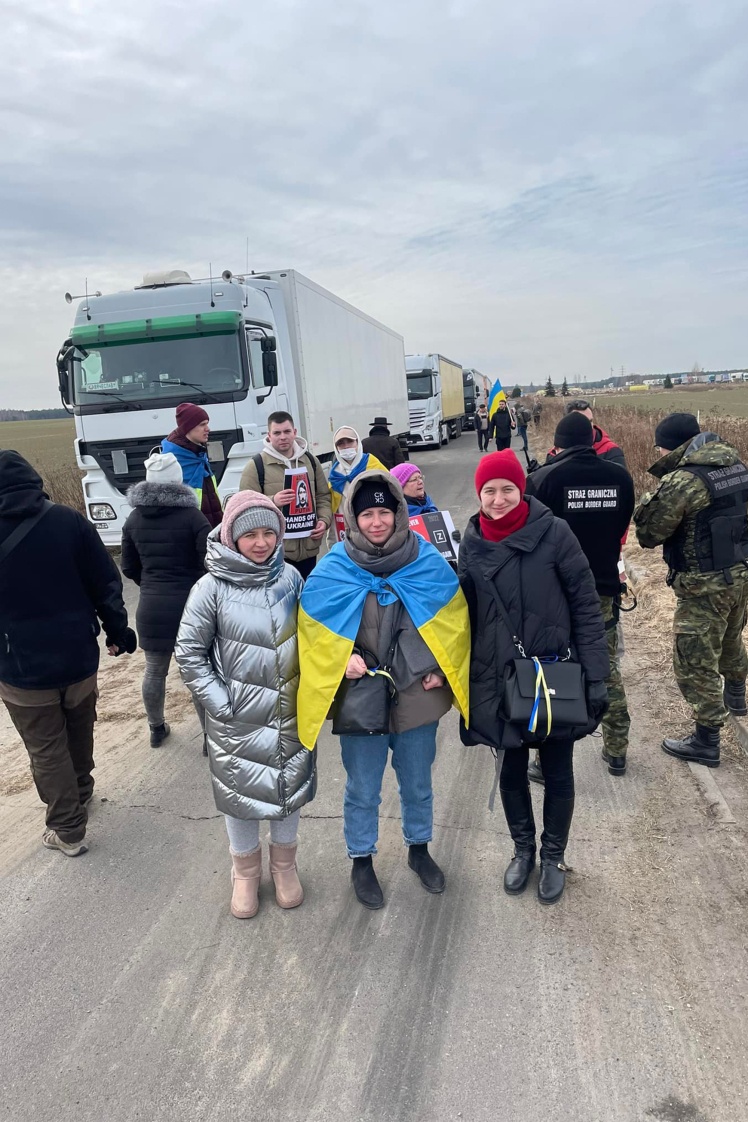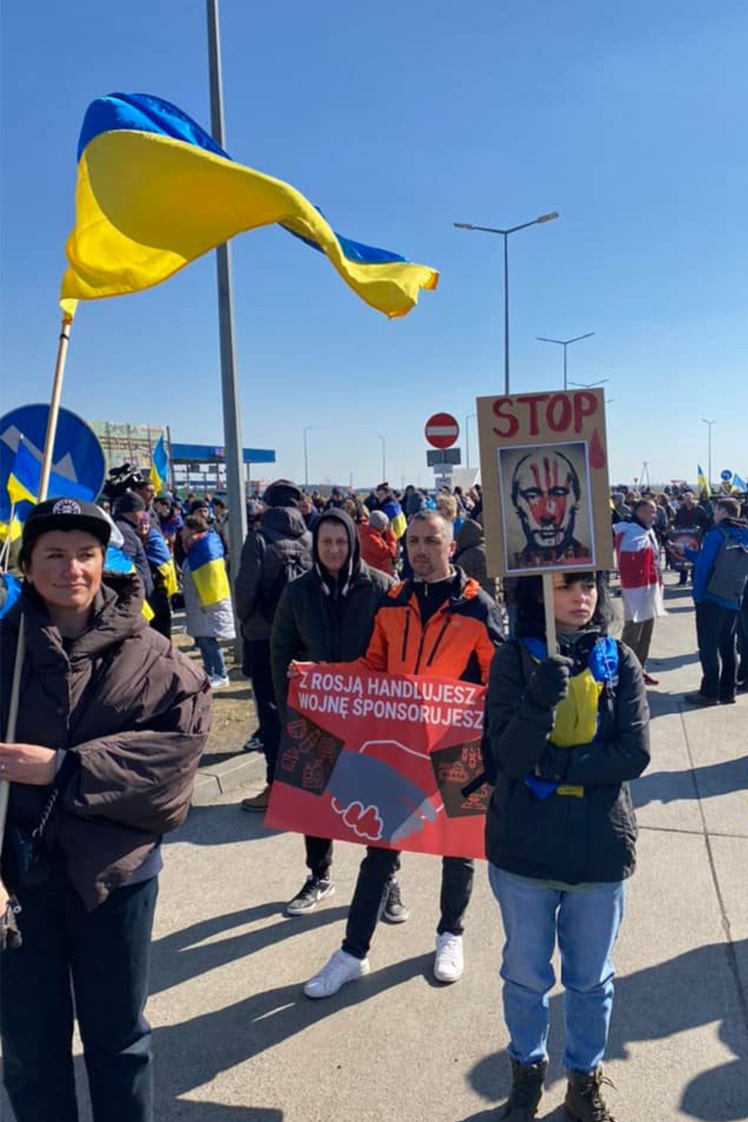— How many trucks are standing at the border right now?
We have already stopped counting trucks. For now, the queue is longer than 50 kilometers.
Are these Polish trucks?
— When we first protested last Saturday [March 12], we blocked only Belarusian and Russian trucks. We let all other trucks go. But our demands werenʼt met, and on the third day of the protest, the police encircled us and pushed away. We decided: okay, then we wonʼt let go even a single truck. The border has been blocked since yesterday morning. We make an exception only for trucks that transport animals. But there are very few of them, yesterday there were four. We decided that the animals are not guilty of anything, especially the trucks that have Polish license plates and go to Kazakhstan — we have checked it.
— And how many people are blocking the passage now?
— Up to 400. These are Ukrainians living in Poland for a long time and refugees. We went to the gathering point and convinced people to come here. There are also the Polish and Belarusians who call themselves "normal people", so-called "White-Red-Whites" [white-red-white flag is the symbol of Belarusian opposition and protesting].
Ukrainian activists at the Kukuriki-Kozlovychi checkpoint. March 19, 2022.
— How do the Poles explain why they are protesting?
The whole of Poland is now very scared. They are waiting for the war to start. They are against Russia and Putin and want to cut all ties with them. They believe that Russia and Russians should be isolated and support us.
Are there any police now?
Yes, there are a lot of them. There are police vans in the woods and a lot of police. And there are different police units, as we can observe different types of uniforms.
Did you somehow communicate with the police?
Yes, on the first day. They supported us very much, but they did not realize our strength. As an experienced activist who fought with [the former President Viktor] Yanukovych, I was surprised to see the police being on my side, joking with us. They said: "Letʼs make Russian drivers say "Putin khuylo" [Putin is a dickhead] and" Glory to Ukraine". When we were encircled and I was trying to escape and run away, I accidentally hit one of the policemen in the face. He just looked at me, smiled, and thatʼs all. Today I was driving with a friend, a policeman stopped us and asked how long ago I had arrived from Ukraine. I replied that I came after the war started, and he said: "Putin khuylo, Glory to Ukraine, pass."
And now what are the policemen doing?
— Just stand along the road.
What do the truck drivers say? Did you communicate with them?
— Now there is about a kilometer between us. If on the first day we literally stopped the trucks, now we donʼt see them, the police border between us doesnʼt let anyone in. A hundred drivers gathered, they came in a riot, shouted at us, moaned, so the police separated us. One night they painted Z [symbol of the Russian "special operation"] on trucks and shouted that we were Nazis, that they wanted to kill us as Putin did. As we pass them, some drivers show their penises from the windows.
But Belarusian behave drivers in a different way. They came to us for talks, said they were not guilty, but they understood our situation. We explained that we were not against them, we were against how the border functions. They told us secrets — for example, there were trucks that took martinis from Russia. After the sanctions were imposed, it was decided to reload the martini in trucks with Belarusian plates.
Ukrainian activists at the Kukuriki-Kozlovychi checkpoint. March 19, 2022.
— What is your plan for the future? For example, if the police will push you away again?
— I do not think that the police will do it, because yesterday the Prime Minister of Poland [Mateusz] Morawiecki said he fully supports the protesters. But this is not a problem of Poland, this is a problem of the European Union because this is the border between the EU and Belarus. Therefore, Poland cannot make any decisions on its own. They are doing everything possible and have already sent an appeal to the Council of Europe and the European Parliament to close this border.
We plan to continue protesting. Maybe we will block the railways, because there is still traffic through them, although it is not so high. This crossing point is the most popular, we were given access to a logistics monitoring system, so we see where the trucks go the most. Maybe we will do a simultaneous blockade. But everything will depend on the decision of the European politicians.
Our publication relies on readersʼ donations. Please support Babel now !
